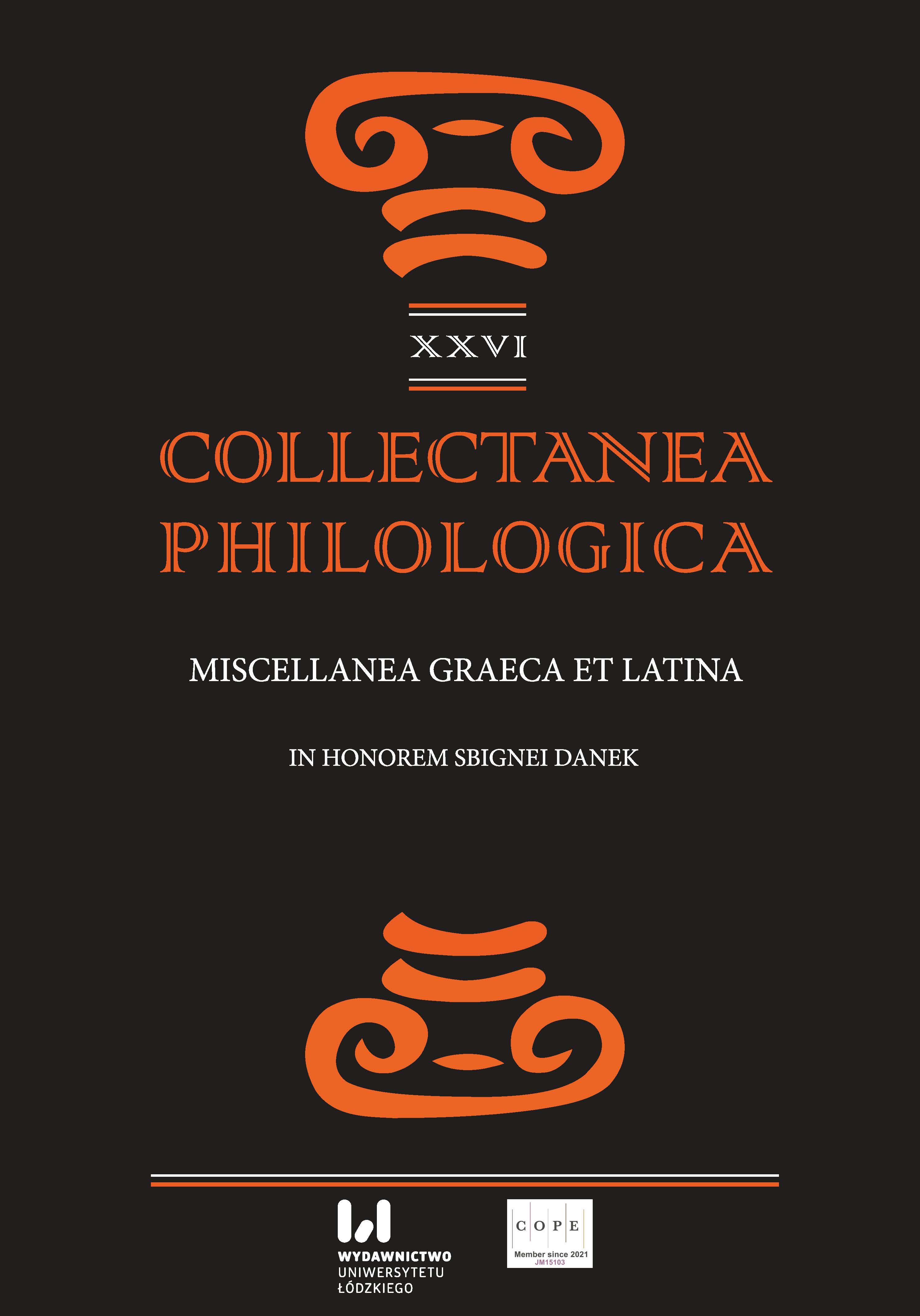Sic undique fulgor percussit. Ekfraza w VII eklodze Kalpurniusza Sykulusa
Sic undique fulgor percussit. Ekphrasis in Eclogue VII by Calpurnius Siculus
Author(s): Eryka GryksaSubject(s): History, Language studies, Studies of Literature, Ancient World, Latvian Literature
Published by: Wydawnictwo Uniwersytetu Łódzkiego
Keywords: Calpurnius Siculus; pastoral poetry; ekphrasis; Roman amphitheatre
Summary/Abstract: The aim of the article is to propose a new Polish translation of the ekphrastic passage of the VII Eclogue (vv. 23-72) by Calpurnius Siculus. It will be preceded by a short commentary, in which special emphasis will be placed on the means of artistic expression used by the poet. The 50-line ekphrastic passage is a story told by Corydon, who recalls his visit to Rome. It is the longest description of this type preserved in pastoral poetry. A shepherd, who wants to leave the countryside and go to the city to start a real literary career there, describes with delight the breathtaking amphitheatre. He is impressed by the splendour, rich ornamentation, as well as the animals exhibited in the arena. In addition to hares, horned boars, elk and bulls, Corydon could also admire sea monsters. All of them fit in with the tradition of locus horridus, which is in opposition to the topos of loci amoeni, i.e. an idyllic, safe place away from the hustle and bustle of the city (topos, which is well known from bucolic poetry).
Journal: Collectanea Philologica
- Issue Year: XXVI/2023
- Issue No: 1
- Page Range: 139-149
- Page Count: 11
- Language: Polish

